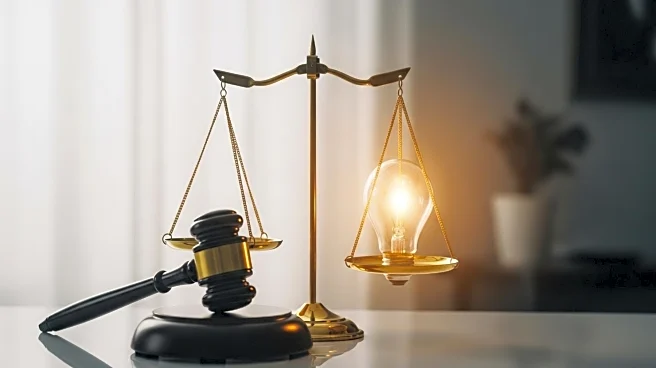What's Happening?
Jenin Younes, a First Amendment lawyer, has shifted her focus from challenging the Biden administration to targeting the Trump administration over alleged free speech violations. Younes, who previously sued the Biden administration for censorship, is now concerned about the Trump administration's efforts to suppress anti-Israel activism. She claims that policies and pressure campaigns have led to deportations, job losses, and expulsions from colleges. Younes has left her position at a right-leaning legal center to become the national legal director for a nonprofit dedicated to protecting Arab Americans from discrimination. Her new role involves pursuing First Amendment lawsuits against the Trump administration, which she believes is engaging in more overt speech suppression than its predecessor.
Why It's Important?
The actions of the Trump administration, as described by Younes, could have significant implications for free speech rights in the U.S., particularly concerning political dissent and activism. If the administration is indeed suppressing speech through deportations and other measures, it raises concerns about the balance between national security and individual rights. This situation could affect universities, immigrant communities, and activists, potentially leading to a chilling effect on political expression. Younes's legal challenges may set precedents for how free speech is protected or restricted under current policies, influencing future administrations and legal interpretations of the First Amendment.
What's Next?
Younes plans to file new lawsuits targeting the Trump administration's policies, particularly those affecting Arab Americans and anti-Israel activists. The outcomes of these cases could lead to changes in how free speech is protected in the U.S., especially in academic settings and immigrant communities. The administration's response to these legal challenges will be crucial in determining the future landscape of free speech rights. Additionally, the political and public reactions to these lawsuits may influence broader discussions on civil liberties and government accountability.
Beyond the Headlines
Younes's shift in focus highlights the complexities of free speech advocacy, where political affiliations and personal beliefs can influence legal strategies. Her actions underscore the ongoing debate about the role of government in regulating speech and the potential consequences of such regulations. The cultural and ethical dimensions of this issue are significant, as they touch on the rights of minority groups and the responsibilities of institutions to uphold democratic values.









